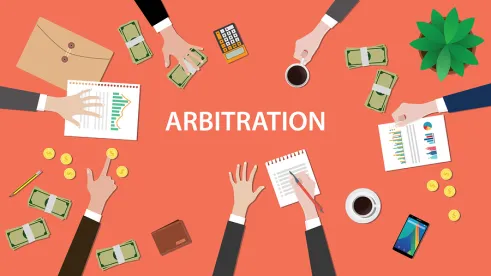On May 21, 2018, Justice Gorsuch delivered a 5−4 opinion for the U.S. Supreme Court holding that arbitration agreements containing class and collective action waivers must be enforced pursuant to the Federal Arbitration Act (FAA), and are not otherwise nullified by the FAA’s savings clause or the National Labor Relations Act (NLRA). Epic Systems Corp. v. Lewis, No. 16-285; Ernst & Young LLP, et al. v. Morris, et al., No. 16-300, National Labor Relations Board v. Murphy Oil USA. Inc. et al., No. 16-307 (May 21, 2018).
Justice Gorsuch outlined the question presented by this case: Should employers be allowed to insist that workplace disputes be handled in one-on-one arbitration or should employees always have an option to bring claims in collective actions? Justice Gorsuch, writing for the Court’s conservative majority, wrote, “As a matter of law the answer is clear. In the Federal Arbitration Act, Congress has instructed federal courts to enforce arbitration agreements according to their terms – including terms for individualized proceedings.”
Chief Justice Roberts and Justices Alito and Kennedy joined Justice Gorsuch’s opinion, and Justice Thomas filed a concurring opinion.
Justice Ginsburg filed a strong dissenting opinion, joined by Justices Kagan, Sotomayor and Breyer.
An examination of the cases and proceedings leading up to this highly anticipated Supreme Court decision provides interesting context.
Background
On May 26, 2016, a panel for the Seventh Circuit Court of Appeals in Lewis v. Epic Systems Corp. unanimously held that a collective action waiver, as a condition of continued employment, violates employees’ rights to engage in concerned activity protected by Section 7 of the NLRA.¹ The Seventh Circuit covers Illinois, Indiana and Wisconsin.
On August 22, 2016, the Ninth Circuit Court of Appeals, which covers Alaska, Arizona, Hawaii, Idaho, Montana, Nevada, Oregon and Washington, followed suit in Morris v. Ernst & Young, LLP.²
Epic Systems and Ernst & Young each filed petitions for certiorari to the Supreme Court on September 2, 2016, and September 8, 2016, respectively.
Meanwhile, in the Fifth Circuit (covering Louisiana, Mississippi and Texas), the law was taking a different direction.
In 2012, the National Labor Relations Board (NLRB or the Board) issued a decision in D.R. Horton, Inc.,³ wherein the Board first held that class and collective action waivers found in arbitration agreements violate the NLRA. The NLRB explained that, “from its earliest days [the Board has held that] employer-imposed, individual agreements that purport to restrict Section 7 rights violate the NLRA.4 The employer appealed the NLRB’s decision to the Fifth Circuit, and the Fifth Circuit overturned the Board’s decision on December 3, 2013.5
At this point, the Court comprised a 5−4 split favoring Republican-appointed justices, who were thought to share conservative ideology. In any event, the Board chose not to seek review from the U.S. Supreme Court.
Instead, on October 28, 2014, the NLRB issued its decision in Murphy Oil USA, Inc., once again affirming its position that class and collective action waivers contained in arbitration agreements violate the NLRA.6
Under applicable rules, Murphy Oil could have appealed the Board’s decision to the D.C. Circuit or to any circuit where it has sufficient business operations. The facts and underlying proceedings at issue in Murphy Oil occurred in Alabama, which falls within the Eleventh Circuit Court of Appeals. In a seemingly calculated move, however, Murphy Oil appealed the Board’s decision to the Fifth Circuit, availing itself of the Fifth Circuit’s pro-employer precedent in D.R. Horton.
The Fifth Circuit once again overturned the NLRB finding that the Board erroneously held that an employer violates the NLRA by requiring employees to sign an arbitration agreement with a class or collective action waiver. Relying on Supreme Court precedent, the Fifth Circuit explained that the Board’s decision failed to afford proper deference to the policies favoring arbitration pursuant to the FAA.
Rather than directly appeal the Fifth Circuit’s decision to the Supreme Court, the NLRB first asked for a re-hearing from the Fifth Circuit en banc (a rehearing from all judges in the circuit). The Fifth Circuit denied the Board’s request on December 13, 2015.
On September 9, 2016, the same week that Epic Systems and Ernst & Young filed their respective petitions for review to the Supreme Court, the NLRB filed its petition requesting that the Court reverse the Fifth Circuit in Murphy Oil.
On January 13, 2017, the Supreme Court granted certiorari in Epic Systems, Ernst & Young, and Murphy Oil to resolve the circuit split as to the lawfulness of class and collective action waivers in arbitration agreements. The Court consolidated the three cases.
A 4−4 tie was expected until Justice Gorsuch joined the Court in April 2017. The two prior Supreme Court opinions addressing the enforceability of class and collective action waivers (both outside of the employment context) were decided 5−47 and 5−38, and authored by the now deceased Justice Scalia.
One final note of interest as to these proceedings: In September 2016, the Solicitor General under the Obama Administration filed a petition for writ of certiorari on behalf of the NLRB seeking to overturn the Fifth Circuit’s decision in Murphy Oil. In June 2017, the Solicitor General, now under the Trump Administration, changed positions and filed an amicus brief in support of the petitioners-employers in the Seventh and Ninth Circuit cases. As a result, the NLRB was permitted to represent itself, and the U.S. government presented briefs advocating for both sides of the issue.
1823 F.3d 1147 (7th Cir. 2016), cert. granted, 137 S. Ct. 809 (U.S. Jan. 13, 2017) (No. 16-285), rev’d, 2018 U.S. LEXIS 3086 (U.S. May 21, 2018).
2834 F.3d 975 (9th Cir. 2016), cert. granted, 137 S. Ct. 809 (U.S. Jan. 13, 2017) (No. 13-16599), rev’d, 2018 U.S. LEXIS 3086 (U.S. May 21, 2018).
3In Re D. R. Horton, Inc., 357 NLRB 2277 (2012).
4Id. at 2280.
5D.R. Horton, Inc. v. N.L.R.B., 737 F.3d 344, 354 (5th Cir. 2013), petition for rehearing en banc denied, No. 12-60031, 2014 U.S. App. LEXIS 24994 (5th Cir. April 14, 2014).
6Murphy Oil USA, Inc., 361 NLRB 72 (Oct. 28, 2014).
7AT&T Mobility LLC v. Concepcion, 563 U.S. 333, 131 S. Ct. 1740 (2011)
8DIRECTV, Inc. v. Imburgia, 136 S. Ct. 463 (2015)



 />i
/>i

